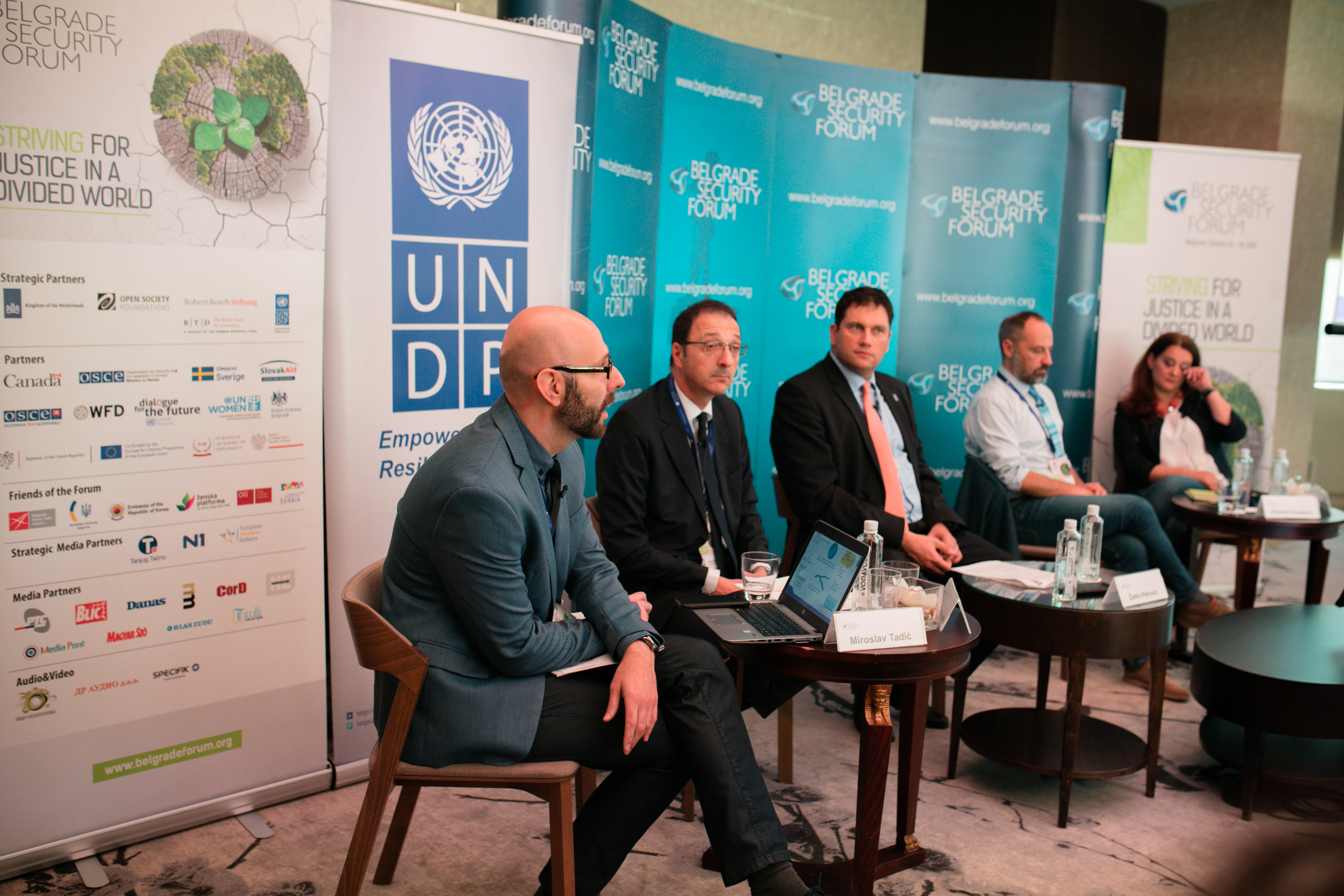Climate Change Agreements Pending Implementation
Given that the focus of the BSF2019 lies on various topics revolving around justice in a polarized world, climate change and the urgent need for action were a crucial part of discussions on the second day of the forum. In partnership with the UNDP Serbia, expert discussions took place under the topic of the Socio-Economic Aspects of Climate Change Impacts in Serbia, moderated by Žarko Petrović, Team Leader on Resilient Development in UNDP Serbia.
The discussion started with highlighting the importance of data and research development in the field of climate change in Serbia, as the moderator Petrović addressed the panellists with two crucial questions: What is the response of the international community towards climate change issues and what is Serbia’s stance on it? Furthermore, how is climate change affecting Serbia and the region?
The panellists agreed on several common points such as the latest changes in temperatures which are increasing and proving the existence of the heatwave spread in the world, the expensive costs of climate change mitigation and adoption, as well as on the negative socio-economic impacts which result in natural damages, loss of jobs and financial obstacles (GDP decline).
It was mentioned that despite the existing scepticism and denial of climate change, the realities we are experiencing are revealing the dangers posed by it, and if there is no measure taken in time, these dangers will lead to very negative outcomes for our societies.
“The consequences of climate change will be there, no matter if we approve or disapprove of their existence’’, said Danijela Božanić, Climate Change Expert on Climate Action Consulting in Serbia.
Regarding the stance of Serbia on these matters, the panellists argued that the country has signed and ratified vital agreements on climate change and climate protection, but there is no adequate implementation of these agreements in practice.
On the question of how to respond to climate change problems and where to focus, the experts agreed that waste management, recycling, and investment in scientific research, alongside combined regional and international efforts should be the key priorities. Furthermore, Miroslav Tadić, Portfolio Manager for Climate Change at the UNDP office in Serbia concluded that managing the lack of financial resources and investment in climate change is also important. Tadić added that this will be costly for national governments but at the same time it will be an opportunity for further development, so that future generations can live and lead a more sustainable life.








